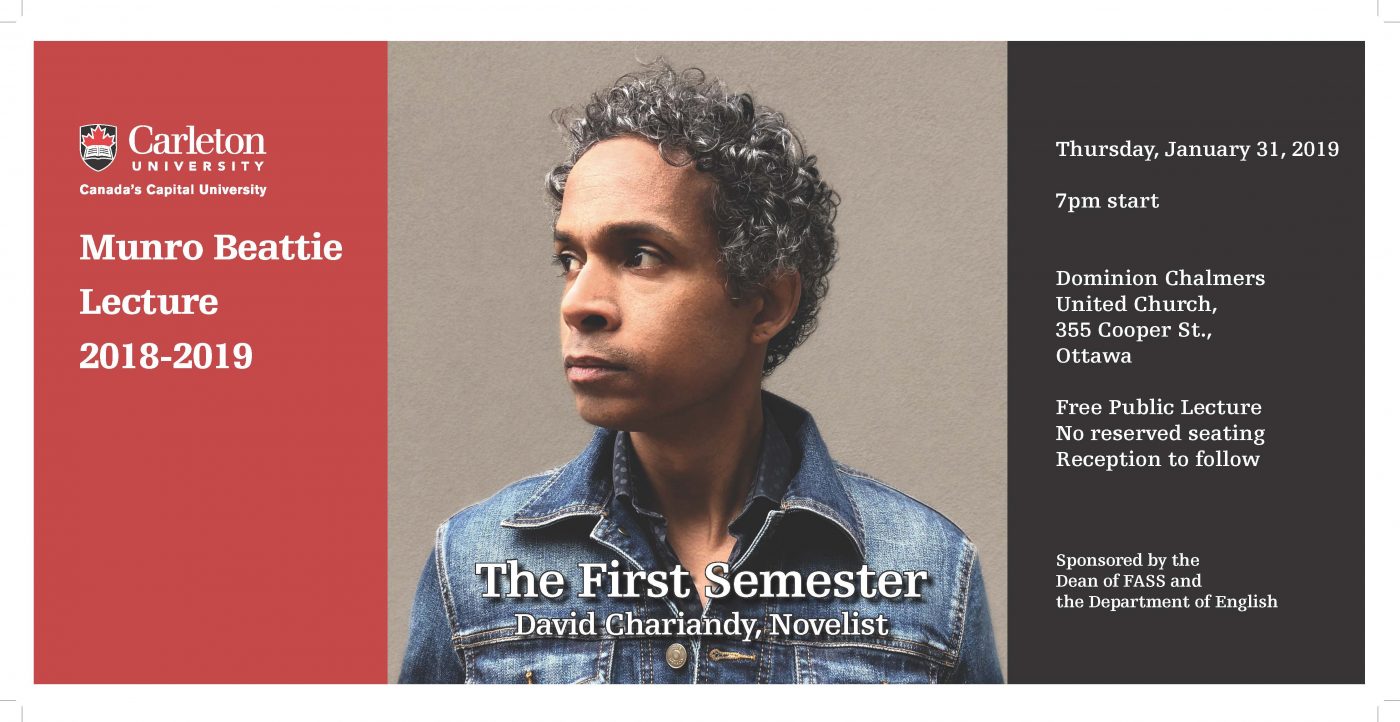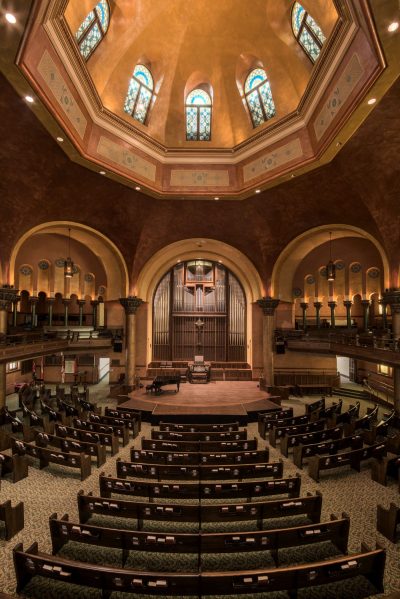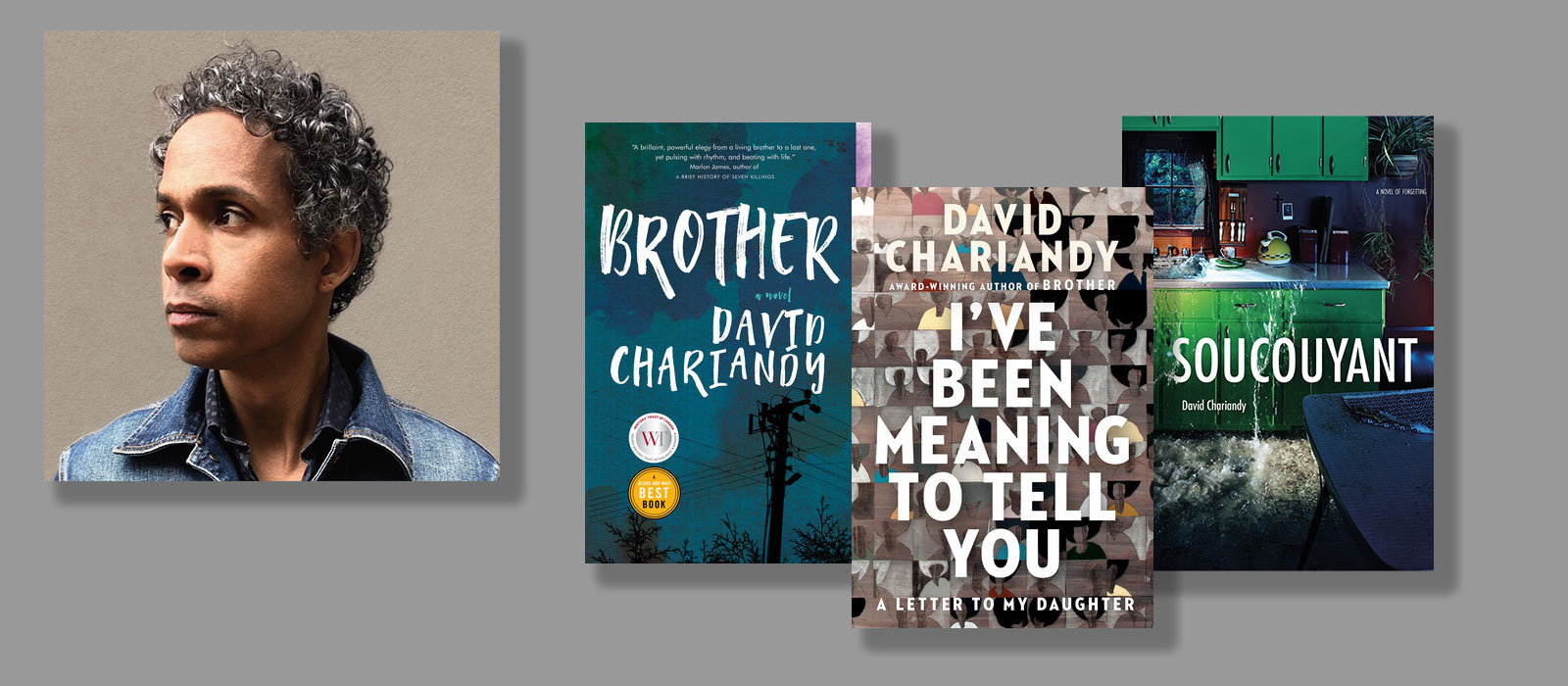Past Event! Note: this event has already taken place.
A Widening Community: Compassion, Kindness, David Chariandy, and the Munro Beattie Lecture
January 31, 2019

By Dessa Bayrock (Ph.D. candidate)
Water under the bridge;
it is time to speak of it
and where it ran:
of the old building
where everyone knew everyone
and the talk all was
of the wilderness
that was to be the new campus.
George Johnston
“A Letter to Munro Beattie on his Retirement”
I’ve wanted to believe that people of many backgrounds can find points of commonality in a world of hardened divisions, precious moments of recognition and intimacy across differences, and so begin the necessarily hard work of authentically seeing and hearing one another. Of course, I want to believe that reading and discussing books can play a part in this. But I also want to avoid easy answers to the intricacies of the world, or being blind to persistent hierarchies of power.
David Chariandy
I’ve Been Meaning to Tell You: A Letter to My Daughter
The name Munro Beattie is familiar to every English student at Carleton University, where it is emblazoned on decades’ worth of proud posters framed and hung in the department halls advertising the annual Munro Beattie Lecture. Northrop Frye has given the Munro Beattie; so have Giller-winners Lynn Coady and André Alexis; so has Nobel Prize-winner Wole Soyinka. The lecture is by far the biggest and best-known event organized by the English department—an event that brings together the academic and the conversational, the literary and the social.
And yet what of the man who gave the lecture its name? Beattie’s name has become inseparable from the annual event, to the point where it trips off the tongues of students and professors alike without the flicker of a thought that it once belonged to a person. And yet the lecture is not just a community event or a literary extravaganza; it is the legacy of Professor Munro Beattie, who taught six decades’ worth of students, who watched Carleton spring up from only a few buildings into many, who nurtured Carleton’s English department into the vibrant and active community it is today. Today, the Munro Beattie Lecture stands as a reminder that Carleton must move beyond the walls of the ivory tower in order to build an institution that can be engaging, vibrant, diverse, and welcoming.
This mission of the Munro Beattie Lecture takes on new meaning this year, as the first Carleton event to take place at the beautiful Dominion Chalmers Church, renamed the Carleton Dominion Chalmers Centre (CDCC) after its acquisition by Carleton University last spring. The hall more than doubles the seating capacity of any space on campus, and also makes space for Carleton to host events, including the Munro Beattie Lecture, deep in the heart of Ottawa.

The interior of Dominion Chalmers United Church
This push to widen Carleton’s reach is likewise reflected in the department’s choice of Canadian novelist David Chariandy for this year’s lecture, himself a graduate of Carleton’s English Department.
“I grew up the embodiment of what some feared and refused to understand,” Chariandy writes in his latest book, I’ve Been Meaning to Tell You: A Letter to My Daughter—a quietly beautiful work of nonfiction that wrestles with privilege, historical trauma, and the terrifying experience of raising a child in a world that is so often racist, threatening, and exclusive.
As he writes in this book, Chariandy is the child of first-generation immigrants from Trinidad, parents who had to fight both immigration policy and racism in order to build for themselves and their children a life in Canada. Growing up in Scarborough, Chariandy notes he was often identified as “trouble” in his high-school classes, whether or not that was the case.
And yet, seemingly against all odds, Chariandy went on to study at university—receiving a B.A. in English, and then an M.A at Carleton, and later a PhD at York University. The biggest barrier to his academic success, he began to realize, wasn’t his ability, his intelligence, or his work ethic, but rather the colour of his skin.
In short, Chariandy emblematizes how academia is changing and must continue to change—to become more open, more inclusive, and more supportive of students from backgrounds of all kinds. This, above all, is the example he provides in I’ve Been Meaning to Tell You, but also in his novels Soucouyant (2007) and Brother (2017), which likewise struggle with race, familial obligation, and care in their own way. It is also an example he sets in his presence at the front of a classroom at Simon Fraser University, where he is now a professor.

I’ve Been Meaning to Tell You takes the form of a long and vulnerable letter addressed to his daughter. But it is also a letter to every child: every youth, every student, every reader trying to make their way in the world both inside and outside academia.
After all, it is a world which is often unwelcoming or even threatening, a world which requires clever and dedicated work to navigate and survive. There are many who did not or could not make it in such a world, and Chariandy grieves for them.
“They were kids from loving if struggling homes like ours, but with a sick parent whose illness had plunged the household into chaos,” Chariandy writes. “They were kids […] who had grown both bitter and sensitive and who had come to permanently hurt themselves or others in fruitless fights […] or else, through the everyday erosion of hope in society and belief in themselves, had simply come to question whether they had a livable future.”
What sort of advice can be given for such a world, and to all the those who struggle to find a place where they can feel welcome and supported?
“I do sincerely believe that people of different backgrounds can learn to love one another. But I also believe that the acts of seeing and hearing are never automatic,” Chariandy writes, and the reader can almost imagine him saying it—slowly, thoughtfully, as all hard truths must be found and spoken.
Because I’ve Been Meaning to Tell You is nothing if not exactly that: a series of truths, spoken gently, firmly, brought into the world in order to begin to stitch it back together.
And, in the beautiful, quiet, sacred space of the Carleton Dominion Chalmers Centre on January 31, Chariandy’s lecture will again begin to do just that: to bring listeners with disparate pasts and burdens together into a cohesive present, into a collective struggle, into a community.